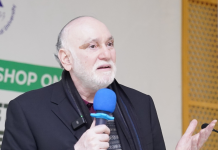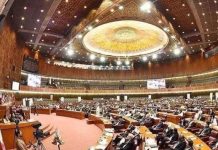Lahore – /DNA/ – The Pakistan Industrial & Traders Association Front (PIAF) Chairman Mian Nauman Kabir has said that high cost of doing business has proved to be dangerous for Pakistan’s industry, discouraging investment both in capacity and capability. Due to the high rates of electricity, power theft became rampant as the tariff was not affordable for the consumers.
He said that excess payment of General Sales Tax worth Rs85 billion have been paid to the Federal Board of Revenue while GST billed by independent power producers (IPPs) stood at Rs117 billion whereas the GST billed to the consumers stood at Rs202 billion. In addition to it, the government was collecting Rs22 billion taxes on fuel adjustment charges. The total amount of fuel adjustment charges with taxes stood at Rs383 billion where it comes to Rs361 billion without taxes and duties from the consumers. Keeping in view of this heavy burden, the rationalization of GST and other taxes in power sector is must to reduce the price of electricity, he suggested.
Mian Nauman Kabir called for lessening burden of heavy taxes on the power sector, as it has pushed the electricity prices higher and added to the already soaring cost of trade and industry.
He appreciated the government for approving continuation of electricity and gas subsidy for export-oriented sectors, seeking the same competitive energy tariffs for domestic industries to capture the global market.
PIAF Chairman said that the recent approval of Rs.68 billion for extension of concessional rates of electricity and RLNG was important for sustained increase in exports but this benefit also be provided to local industry to support the industrial growth for which low cost inputs and raw material is the basic essential of industrial expansion.
Mian Nauman endorsed the proposal of the Power Division for early termination and buyout of oil-based IPPs, with generation capacity worth 3,300MW and 5 percent average annual dispatch factor. Their fuel cost amounts to Rs13 per unit. However, consumers were paying Rs60 billion a year on account of ‘take or pay’ capacity charges, the impact of which on consumer tariff was Rs0.6 per unit. The consumers will be paying Rs450 billion in aggregate on account of capacity charges over the remaining average seven years of their contracts.
PIAF Vice Chairman Javed Siddiqi said that the electricity theft in the power sector of Pakistan continues to hit the entire energy chain in the current financial year 2020-21, leading to the worst energy crisis.
The higher rate of electricity theft is the major reason for the rising circular debt that has crossed Rs2.5-trillion mark this year.
The power distribution companies are still bleeding from the highest rate of electricity theft, as the Peshawar Electric Supply Company in K-P recorded 35 percent losses in financial year 2020-21 while Hyderabad Electric Supply Company faced 28 percent and Quetta Electric Supply Company 22 percent losses. In the same way, Islamabad Electric Supply Company faced 9 percent losses. The average rate of electricity theft is 17 percent in the current financial year 2020-21 which needs to be controlled at any cost. He said that there is no denying of the fact that the government has been facing numerous economic challenges besides other internal and external issues and problems during the last three years.

















